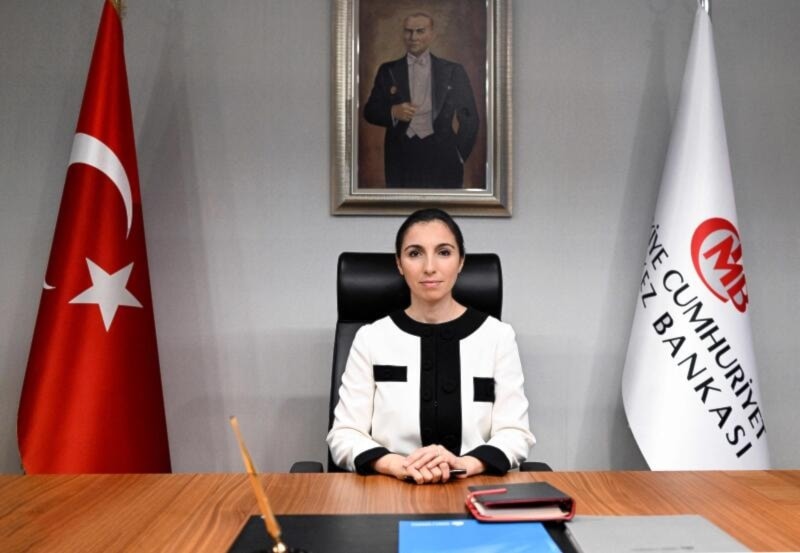Turkey's central bank chief resigns after nepotism scandal
The 44-year-old faced harsh criticism on social media and in certain opposition newspapers for reportedly enabling her father to make unlawful personnel decisions at the bank.
-

Hafize Gaye Erkan, governor of Turkey's central bank, in Ankara, June 9, 2023 (AFP)
The Turkish Central Bank president, Hafize Gaye Erkan, resigned Friday after less than a year on the job due to a media controversy involving her family.
In a social media message, the respected former Wall Street executive announced that she had "requested from the president to be pardoned from my duties, which I have carried out with honor from the first day."
The 44-year-old faced harsh criticism on social media and in certain opposition newspapers for reportedly enabling her father to make unlawful personnel decisions at the bank.
Erkan, elected in June, allegedly enraged President Recep Tayyip Erdogan by telling a prominent newspaper last month that she had to move in with her parents since inflation had made renting in Istanbul expensive.
The attacks on Turkey's first female central bank governor startled investors and raised questions about Erdogan's long-term dedication to his team.
In her statement, Erkan explained that a "reputation assassination campaign" was organized against her.
She noted that she was stepping down to avoid her family and child from being affected by the process.
In December, the Turkish newspaper Daily Sabah reported that Turkey's Central Bank reserves have skyrocketed, reaching an all-time high of $145.5 billion. This reflects a $47 billion increase since the month of May, signaling robust economic activity.
In a strategic move to address economic challenges, the Central Bank declared its commitment in June to gradually tighten monetary policy. This initiative aims to persist until a significant shift occurs in the high inflation forecast. Over the intervening period, the key interest rate has seen a substantial adjustment, escalating from 8.5% to 42.5%.
Turkey faced a considerable inflationary surge, reaching approximately 62% in November, causing concerns about economic stability. Correspondingly, the Turkish lira witnessed a consistent decline against the US dollar throughout the year 2021.
Since the commencement of 2023, the Turkish currency has experienced monthly depreciation, except a respite in August. Notably, June witnessed a substantial decline of nearly 25%, as the lira fell from 20.8 liras to 26 liras per dollar. The subsequent month saw the exchange rate surpassing 27 liras.

 2 Min Read
2 Min Read








